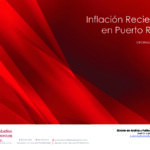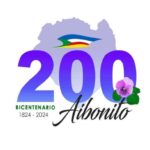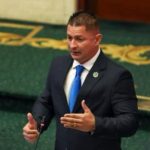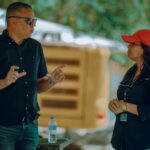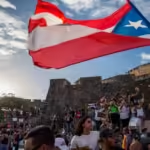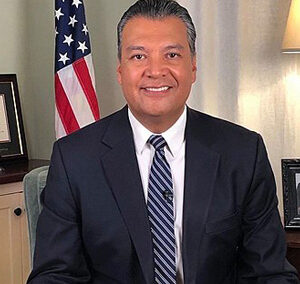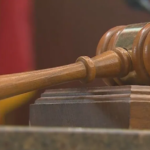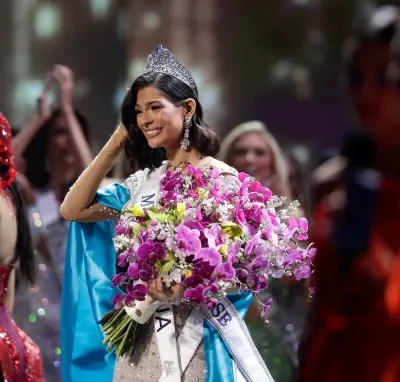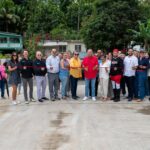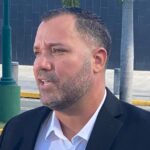- Legacy of corruption, short-staffed agencies
- Task force will focus on environmental justice
The Justice Department’s new plan to crack down on environmental crimes in Puerto Rico and the US Virgin Islands is badly needed to combat corruption and shore up threadbare local agencies, according to Puerto Rico’s former top environmental official.
The agency is organizing a task force that will prosecute environmental violations and cases of waste, fraud, and abuse.
“They desperately need the help,” said Ramón Cruz, who formerly served as deputy director of Puerto Rico’s Environmental Quality Board. “This has a huge impact. It adds some triangulation or redundancy in the investigation of these crimes.”
Last year, the DOJ and Environmental Protection Agency filed a settlement order requiring the town of Toa Alta, Puerto Rico, to stop piling up waste in a landfill the government called an “open dump.” On May 11, the same day the DOJ task force was announced, a federal grand jury indicted two men for allegedly depositing material into US waters in Salinas, a coastal town in Puerto Rico’s south.
Meanwhile, the Limetree Bay oil refinery on the island of St. Croix in the Virgin Islands has long been entangled with the EPA over alleged air and public health violations.
“There have been multiple situations where community and environmental groups here have sounded the alarm on the impacts of activities like fossil fuel energy generation, coastal and wetland degradation, the filling of wetlands—a broad range of activities,” said Ruth Santiago, an environmental lawyer and health advocate based in Puerto Rico. “And certainly not many have been prosecuted. That’s the problem.”
Wetlands, water issues, and waste management are likely to be high on the task force’s list of areas to police, predicted Kevin Minoli, former EPA acting general counsel. Nearly half of Puerto Rico’s economy is in the manufacturing sector, which includes petrochemicals, electronics, and pharmaceuticals. The Virgin Islands’ primary industry is tourism, but it also has a manufacturing industry.
One of the core focuses of the new task force on environmental crime and corruption will be environmental justice, Assistant Attorney General Todd Kim said when the unit was announced. The department didn’t respond to an interview request about what the task force has been doing in its first two months.
The EPA announced a series of actions in Puerto Rico last year, including addressing pollution in and around Salinas and Guayama, groundwater sampling in southern Puerto Rico where coal combustion from the AES Power Plant has been deposited, a lack of clean drinking water in rural communities, and solid waste issues throughout the island.
The agency also established a new regional environmental justice office, with a staffer based in Puerto Rico. EPA Administrator Michael Regan called the suite of actions “just the beginning of our work to deliver results for the people of Puerto Rico.”
Corruption, Slow Economies
One reason environmental prosecutions historically have been lax in Puerto Rico and the US Virgin Islands is that government officials have taken a soft approach to enforcement because of the territories’ economic struggles, said Santiago, who represents Puerto Rico on the White House Environmental Justice Interagency Council.
Puerto Rico recently went through a devastating financial crisis that it’s only now crawling out from, and the Virgin Islands’ economy has been battered by hurricanes, a tourism sector hit hard by the coronavirus pandemic, and rapid out-migration.
“As a territory with very high poverty rates, there’s been the classic race to the bottom situation, where traditionally the government has failed to enforce or allocate resources for enforcement, or has not had the political will because they’re afraid that will impact economic development,” Santiago said.
Another factor is a legacy of public corruption, at least in Puerto Rico, according to Cruz, who until recently served as president of the Sierra Club.
For example, the enforcement of landfills in Puerto Rico fell off sharply because “there was a concerted effort to make landfills fail, so the only option was to drive the trash to waste-to-energy facilities,” Cruz said. “There’s a corruption scheme to favor certain technologies that are not better for the environment.”
Puerto Rico’s Financial Oversight and Management Board recently found that the territory ranked 115th out of 209 countries and territories on governance, a category that includes control of corruption. The Virgin Islands placed 51st, and the US 19th.
Resources Limited
The task force could shore up the existing corps of enforcement staff in Puerto Rico and the Virgin Islands.
The Virgin Islands’ Department of Planning and Natural Resources only has about 30 regulatory staff, according to an agency spokesman.
Numbers are harder to pin down in Puerto Rico because environmental regulation and enforcement is spread across at least four agencies, but Cruz said the Department of Natural and Environmental Resources has been “really targeted” for employee cutbacks in recent years, especially among the enforcement corps.
Minoli, now a partner at Alston & Bird LLP, recalled that when he served at the EPA during the Trump administration, an attorney in the Virgin Islands’ DPNR once went on an extended leave and no one else was available to fill the open role, so the EPA had to send a lawyer to the territory to backfill the position for a year.
“If the resources are that limited, it’s going to be very hard for the agency to keep up with all the environmental compliance and enforcement actions,” Minoli said. “So this task force is a recognition that the US Virgin Islands and Puerto Rico would benefit from additional environmental enforcement attention.”
Meaghan Boyd, a partner at Alston & Bird LLP who has handled enforcement matters for clients in Puerto Rico, said the extraordinarily wide range of agencies participating in the task force suggests it may expand its reach beyond environmental crimes.
In addition to the DOJ and EPA, the task force includes the Army, Internal Revenue Service, Coast Guard, and Departments of Homeland Security, Commerce, Transportation, and Agriculture, among others.
“I think it’s inevitable that there will be a broader reach for certain investigations and criminal enforcement measures,” Boyd said. “The businesses and entities down there need to anticipate that inspections will ramp up in the way we’ve seen them in the domestic US, especially post-Covid.”
Views in Congress
Rep. Raúl Grijalva (D-Ariz.), ranking member on the House Natural Resources Committee, told Bloomberg Law that “protection of the natural environment and enforcement of our environmental laws have never been prioritized as they should in Puerto Rico, due in large part to a lack of personnel and resources.”
Grijalva said he thinks the new task force will “help raise the profile of these important issues and improve coordination between law enforcement personnel from different federal agencies and local entities.”
But Rep. Stacey Plaskett (D), the US Virgin Islands’ delegate to Congress with limited voting rights, sounded a note of caution.
“While I believe the genesis of a task force may be well-intentioned, a crime task force that emphasizes criminal enforcement without a larger focus on support and technical assistance to the government of the Virgin Islands and to businesses here in the territory would be not a good use of resources,” Plaskett said in an interview.
On the other hand, “a task force that will promote and enhance interagency cooperation to ensure our communities receive adequate support and protection is something I could support,” Plaskett said.
She called on the task force to prioritize criminal violations of the Clean Air Act, Clean Water Act, and Rivers and Harbors Act, as well as crimes that harm the Virgin Islands’ native flora and fauna, violations of Superfund and hazardous material transportation rules, and public corruption.
(Updates with additional reporting in 9th and 10th paragraphs.)
To contact the reporter on this story: Stephen Lee in Washington at stephenlee@bloombergindustry.com
To contact the editors responsible for this story: Renee Schoof at rschoof@bloombergindustry.com; JoVona Taylor at jtaylor@bloombergindustry.com





